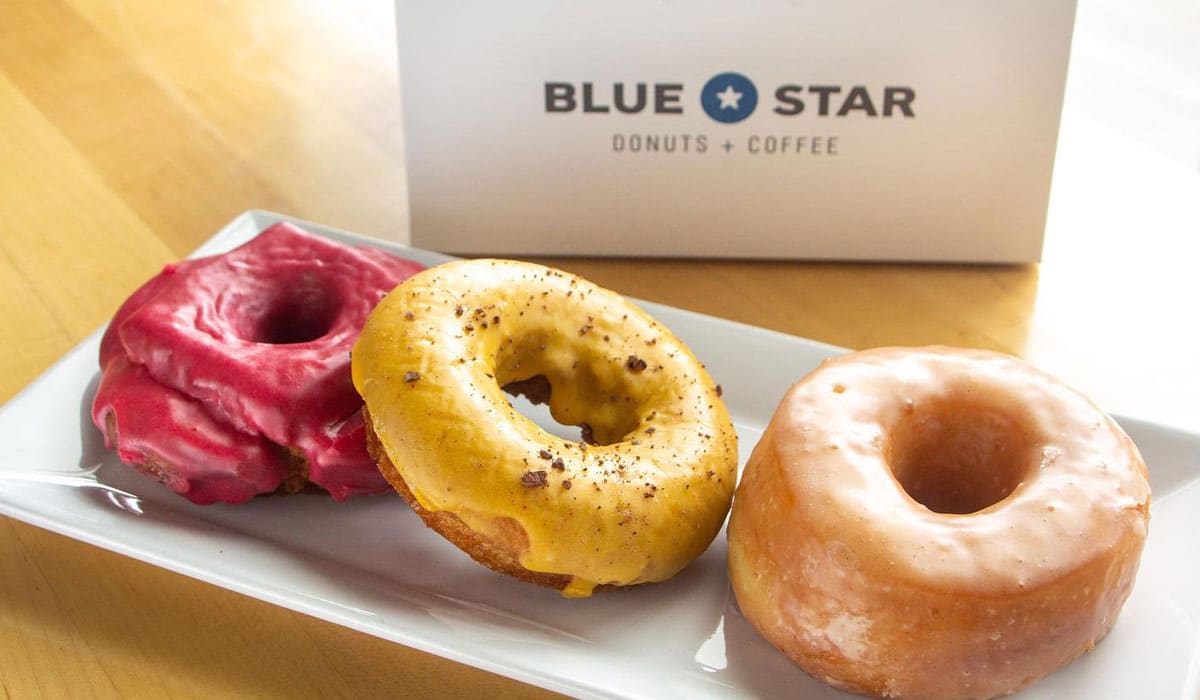Blue Star Donuts announced Monday that it had emerged from bankruptcy with a recapitalized balance sheet and plans to pursue its new wholesale and e-commerce business.
The Portland, Oregon-based brand resolved creditor claims under Subchapter V, a recently established provision that makes bankruptcy proceedings more accessible for small business owners. The bankruptcy plan, which helped attract new capital from existing owners, was sponsored by Sortis Holdings, the recent purchaser of Bamboo Sushi parent Sustainable Restaurant Group.
“I appreciate the trust and faith that [Sortis Executive Chairman Paul Brenneke] and Sortis have in me and my vision for Blue Star,” said CEO Katie Poppe in a statement. “They listened to what was important to me, and put their money where their mouth is, so to speak. Maintaining women-majority ownership and folding in some of our key staff stakeholders was essential to me, and I’m thrilled to finally be able to expand the ownership structure as we rebuild the company.”
Blue Star was specifically aided by the Sortis Rescue Fund, which “rescues and acquires specifically targeted distressed assets in situations with strong value enhancement.”
“Similar to the Sortis Rescue Fund’s past few investments, it’s great brands with a unique strategy like Blue Star that can thrive in a new era of retail post-pandemic,” Brenneke said in a statement. “We were especially intrigued by the potential for wholesale and e-Commerce channels, in addition to the opportunity to help preserve a beloved Portland business and the culture it represents.”
Blue Star filed bankruptcy in late August due to the overwhelming effects of the COVID pandemic and a protracted lawsuit with a landlord. In March, the company was forced to shut down all locations and lay off 80 percent of its staff. Revenue had “completely disappeared overnight” as all sales came from in-store transactions since the concept’s inception in 2012. At the start of the pandemic, the chain operated eight stores, but four have permanently closed in the past several months.
The dire situation led Poppe to develop “Blue Star 2.0,” which involves a larger focus on e-commerce delivery and wholesale, combined with a smaller retail footprint. The company has established wholesale partnerships with New Seasons, Market of Choice, Green Zebra Grocery, and Alpenrose Dairy.
“We’re incredibly grateful to be able to maintain positions for our existing staff members, as well as to continue to support the local vendors and community partnerships we value so much,” Poppe said. “I also cannot thank our fans and customers enough. We read every comment, we cheered with every order. Please know that showing up for and supporting your local restaurants does make a difference! I’m looking forward to getting back to business and focusing on what we do best: making delicious moments.”




